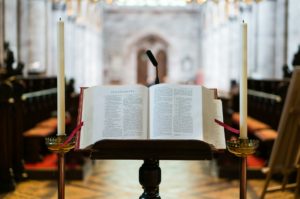Nicolas Cabasilas (c. 1322 – c. 1392), a saint in the Eastern Orthodox Church, was active in Byzantine politics during his youth. As a result of supporting the losing side of a civil war, he was forced into monastic retirement. Though Cabasilas wrote primarily on spiritual issues as a monk, he did make comment on the confiscation of church property for tax revenue in the Rulers’ Illegal Outrages. While his main focus was the preservation of Church property, he extended his argument against the redistribution of wealth across the entire economic system. In the first excerpt Cabasilas restates the paternalistic argument used by the rulers as a rationale for confiscating property from the governed.
Those responsible for the common good must consider what benefits the community. They must act like guardians who administer the property of juveniles not as young people think best but as they know will benefit them most. . . . Subjects may not lack years, like children, but they lack sense, and they use their property irresponsibly. . . . [S]o we need common guardians. . . . to supervise them like children and make the best use of their property, whether they like it or not, even if they react against it or resent it.1
To counter this reasoning, Cabasilas contends that the freedom to own and spend private property is the linchpin of the economic and political liberty that truly serves the common good.
How could there ever be a stable form of government which made it impossible to live in freedom? Freedom has no equivalent, no exchange value in the life of men, whether in currency, lands, or honor. . . . For if no one is master of his own possessions but rulers may make what use they will of them, then at the very mention of “community,” everyone will have to fall a-trembling in fear of their possessions. Who, then,—what craftsman, farmer, merchant—will take the trouble to make money, knowing that everything he earns will go to other people? How can anyone sustain the pursuit of wisdom when struggling against poverty? Or study military tactics, become a learned jurist, master the principle of military command? Where will the community’s revenues come from, with every section of society in the grip of poverty? That is why perceptive rulers have always grasped the need to protect their subjects’ freedom as well as maintain justice . . .2
It is fascinating to consider the veracity of Cabasilas’ words in the light of Eastern European history and for the matter the political happening of our own day here in America. Because we are made in the image of God, living beneath God’s rule, we uphold the liberty, justice, and truth which emanates from his character. It is in the context of this divinely provided freedom that we use our minds to think, our hearts to love, our imaginations to create, our labor to produce, and our wills to worship. In short, political freedom is a gift to be used in the service of God and when it is so used, everyone in society benefits.
Footnotes:
1 Nicolas Cabasilas, “Rulers’ Illegal Outrages against Sacred Property,” in From Irenaeus to Grotius: A Sourcebook in Christian Political Thought, eds. Oliver and Joan O’Donovan (Grand Rapids, MI: William B. Eerdmans Publishing Company, 1999), 477-478.
2 Ibid., 480-481.




